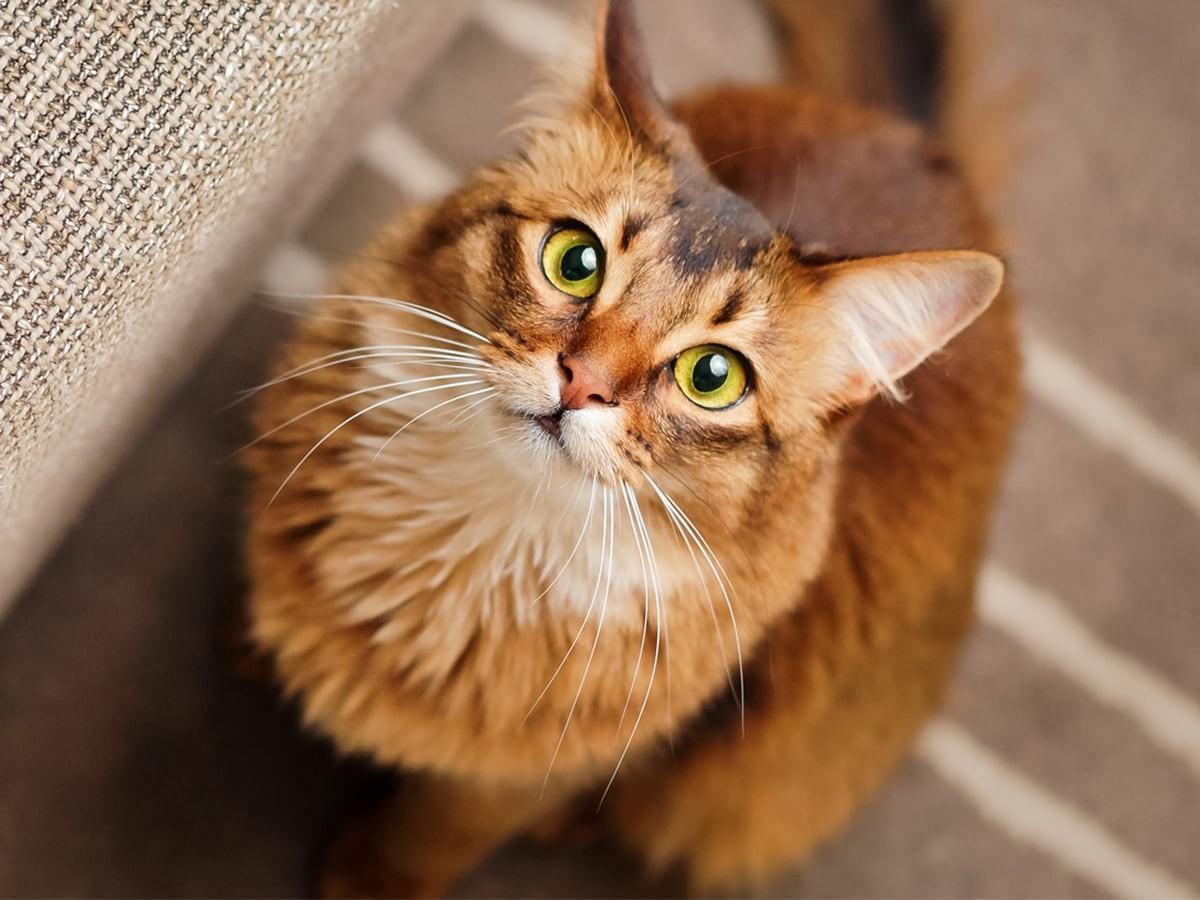Cat parents have long been captivated by their feline companions' unwavering stares, often wondering what lies behind those piercing eyes. While cats' motivations may remain somewhat enigmatic, there are several reasons why they engage in this seemingly peculiar behavior.
How Do Cats Communicate?
Cats communicate through a variety of means, including vocalizations, body language, and facial expressions. Staring is one of the most prominent forms of feline communication, serving as a way to convey emotions, establish social bonds, and express curiosity.
Affection and Bonding: A cat's steady gaze can be a sign of affection and attachment. When a cat stares at its owner, it may be expressing love, contentment, or a desire for attention.
Curiosity and Interest: Cats are naturally curious creatures, and staring is often a way for them to investigate their surroundings and gather information. A cat may stare at its owner out of curiosity about what they are doing or to seek attention.
Dominance and Assertiveness: In some cases, a cat's stare may be a sign of dominance or assertiveness. This is particularly common in unfamiliar situations or when a cat feels anxious or threatened.
Request for Attention: A cat's persistent stare can be a direct request for attention or interaction. They may be seeking affection, playtime, or simply want to be acknowledged.
According to Laura Cassiday, MS, CCBC, ABCCT, there are two types of stares your cat may give you; a hard stare and a soft stare. If your cat is staring at you with their tail up and ears facing forward, they likely want something from you, and are "asking politely." A hard stare on the other hand conveys that your cat is feeling afraid or threatened.
What Are The Additional Factors Influencing Cat Staring?
Beyond the primary reasons, several other factors can influence a cat's staring behavior:
Breed: Some cat breeds, such as Siamese and Balinese, are known for their more intense stares compared to others.
Individual Personality: Cats have distinct personalities, and some may be more inclined to stare than others.
Age: Kittens are naturally curious and may stare more frequently as they explore their surroundings.
Medical Conditions: In rare cases, excessive staring can be a sign of an underlying medical condition, such as hyperthyroidism or vision problems.
Certain medical conditions can result in staring as well. In the article "Why Does My Cat Stare at Me?," published by the Pet Health Network, DVM Justine A. Lee (DVM), states that "several leading causes of death in cats may be associated." These include chronic conditions such as; kidney failure, heart disease, and untreated hypothyroidism. That being said, these cases are very rare!
Key Takeaways
While the exact reasons behind a cat's stare may remain a mystery, understanding the various interpretations and considering the context can help cat owners better understand their feline companions' communication. Whether it's a sign of affection, curiosity, or a request for attention, a cat's stare is a unique form of communication that reflects the complex bond between humans and their feline friends.

If you need a story or someone to talk to your cat like a person, I’m your person. With 3 cats, 1 dog, and a lifetime of pets, I write from experience, usually with a cat on my keyboard and a dog in my lap.











